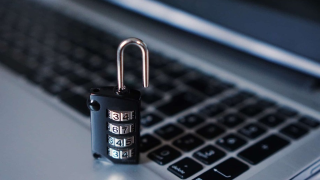Information Security Alert: Surge in Dark Web Data Exposures
Tuesday, February 13, 2024
 In recent weeks, a growing number of Seton Hall University members reported notifications
from various organizations, indicating that their personal information, including
Seton Hall email addresses, has been discovered on the dark web. This surge highlights
the ongoing threats facing individuals and institutions, as cybercriminals persistently
target digital defenses to exploit valuable data for personal gain. It is important
to note that there is no federal law requiring companies to disclose data breaches
to customers, potentially leaving individuals unaware that their data has been exposed
and could be for sale on the dark web. Nevertheless, there are proactive measures
you can take to monitor your information and enhance your online safety.
In recent weeks, a growing number of Seton Hall University members reported notifications
from various organizations, indicating that their personal information, including
Seton Hall email addresses, has been discovered on the dark web. This surge highlights
the ongoing threats facing individuals and institutions, as cybercriminals persistently
target digital defenses to exploit valuable data for personal gain. It is important
to note that there is no federal law requiring companies to disclose data breaches
to customers, potentially leaving individuals unaware that their data has been exposed
and could be for sale on the dark web. Nevertheless, there are proactive measures
you can take to monitor your information and enhance your online safety.
The Department of Information Technology recommends using HaveIBeenPwned.com, a valuable resource to search security incident databases and check if your email address(es) have been involved in any data breaches. The results not only reveal the breach but also provide details on how and when it occurred, along with the type of information that was stolen or accessed. If any email address produces positive results, the primary and immediate action is to promptly change your password. This advice applies to all your accounts, extending beyond just your Seton Hall account.
Create and Maintain Strong Passwords
- Create a strong password: Longer passwords (at least 14 characters) that include a mix of letters, numbers and special characters provide more protection against potential hackers.
- Make the password memorable to you: Use the line method to create strong passwords that are hard to guess, but memorable to you.
- Never share passwords: Do not share your password with anyone. It’s important to note that no one at the University, including IT staff, will ever ask for your password.
- Do not store or write down passwords: Writing a password down increases the risk of loss or unauthorized access. Instead, password managers offer a safe and effective solution. Popular password managers include 1Password, LastPass, LogMeOnce, and Dashlane.
- Do not reuse passwords: Having different passwords across multiple accounts provides more security. This means if a password is compromised, only one account will be affected.
- Set up password reminders: Scheduling recurring reminders on your phone or calendar to prompt password changes for all online accounts every 60-90 days improves your overall digital security.
For any inquiries regarding the security of your Seton Hall account, including potential compromises, password changes, or general questions, the Technology Service Desk is available 24 hours a day.
Categories: Science and Technology






